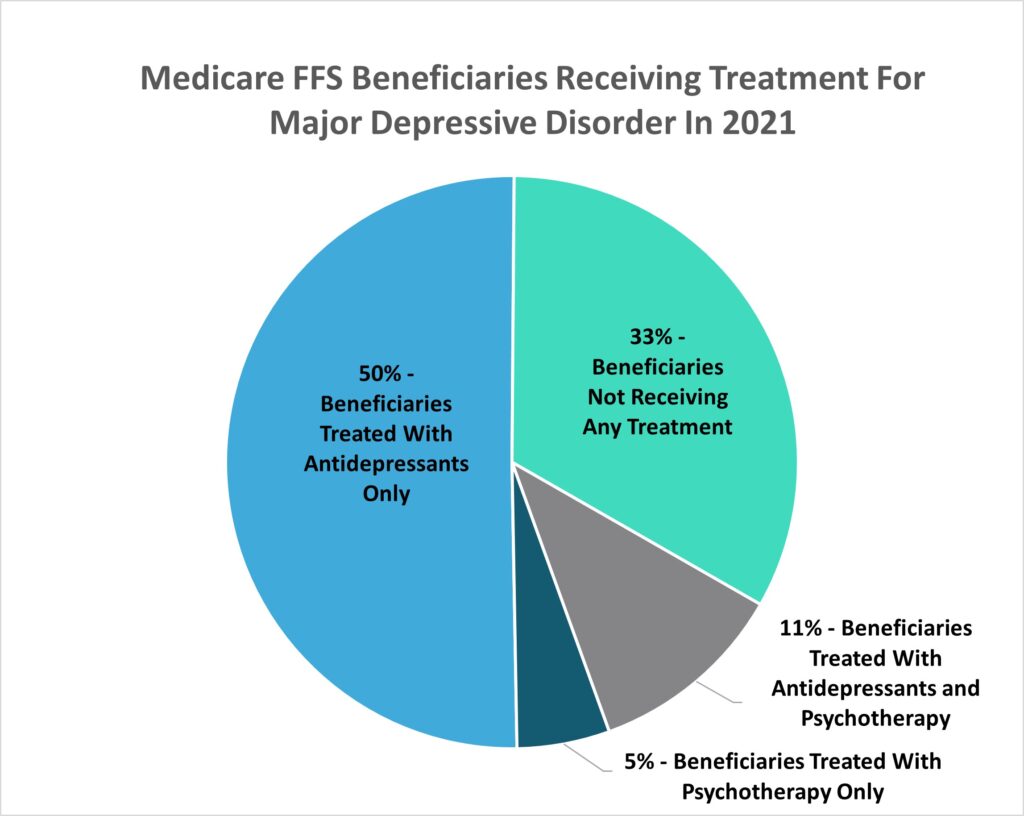Insights,
Insights,
Major Depressive Disorder (MDD) is one of the most common mental disorders in the United States. According to the National Institute of Mental Health (NIMH), an estimated 21 million adults in the United States had at least one major depressive episode in 2020.*
ADVI Health’s Strategic Analytics, Values, and Economics (SAVEs) team wanted to better understand the prevalence of MDD among Medicare beneficiaries and the proportion of patients receiving treatments.
We found that 4,803,589 Medicare FFS beneficiaries had MDD using the Chronic Condition Data Warehouse (CCW). We then profiled the beneficiaries’ Parts A, B, and D claims to evaluate treatment for MDD. While 67 percent of beneficiaries were receiving care in the form of antidepressants or psychotherapy, nearly 33 percent were not receiving any treatment through Medicare.
In 2021, 80 percent of low-income subsidy (LIS) beneficiaries received treatment for MDD compared to 61 percent of non-LIS beneficiaries. Black beneficiaries were the least likely to receive treatment (60 percent of patients) and had the lowest utilization anti-depressants (41 percent) but the highest utilization of psychotherapy (8 percent). Hispanic beneficiaries were the most likely to receive treatment (69 percent) and had the highest utilization of anti-depressants (52 percent). White beneficiaries made up the highest proportion of the MDD population (87 percent).

Get in touch to learn more about how we can help you evaluate unmet needs with the treatment of MDD for Medicare beneficiaries.
*Source: NIMH » Major Depression (nih.gov)


Head of SAVEs